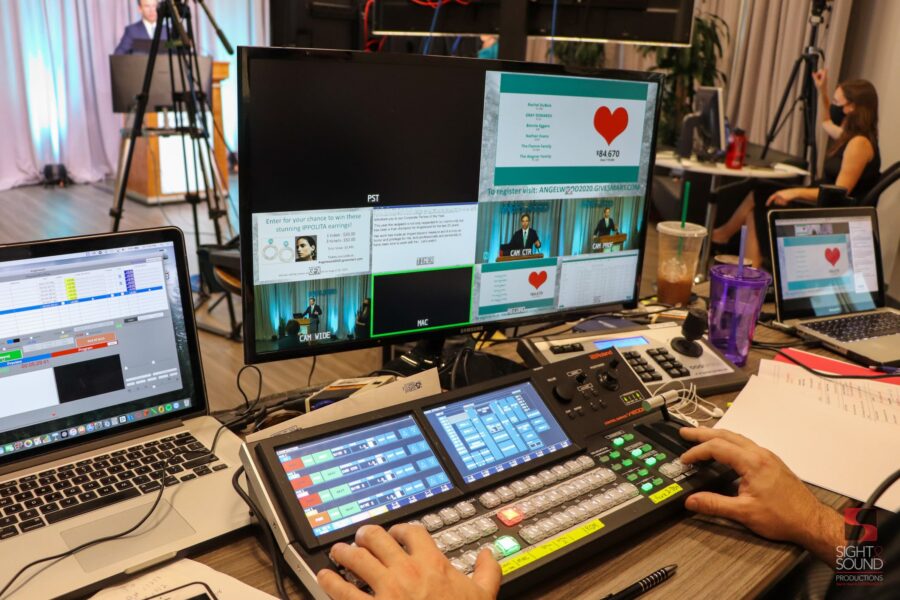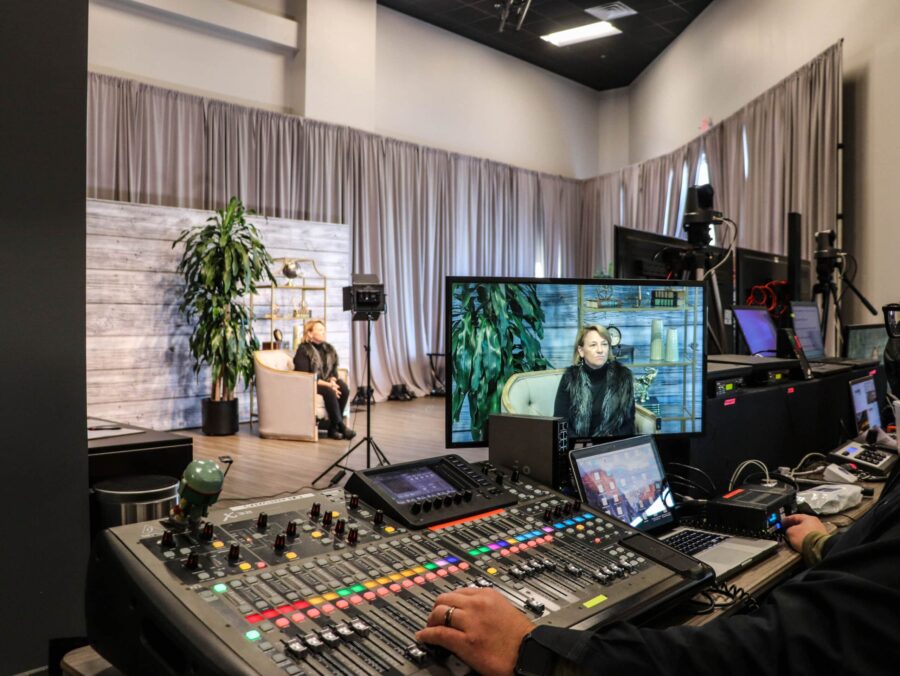Are Virtual Events Still a Thing?
It’s safe to say most people have gotten familiar with “virtual meetings”. In the wake of a global pandemic, the only way to connect with other individuals in real time was through platforms like Zoom, Slack, and Microsoft Teams. Over time, companies grew accustomed to virtual communications and began hosting award galas, conferences, and happy hours, virtually.
Now, most of these events have transitioned back to an in-person setting, but the knowledge and comfort of virtual events remain. Event planners now have a choice on what platform they wish to produce their event through. While some may think in-person events are the obvious choice, virtual events still have plenty to offer.
When are Company Virtual Events Most Applicable?
Why would a company elect to produce a virtual event over an in-person event? Both event types have their pros and cons. A planner must first analyze their immediate needs and intended outcomes for their event. In-person events thrive when collaboration and motivation are highlighted goals. However, virtual events can aid in these goals as well. Interactive technology and small groups, often called “breakout rooms”, within larger virtual meetings offer networking and critical discussion capabilities much like what you would find at an in-person event. Where virtual events thrive are in internal settings.
Sight & Sound Productions recently produced a virtual event for a company hosting diversity and inclusion training for their employees. HR-related events, internal training, new policy rollouts, and company announcements are all great examples of how a virtual event can be just as effective as an in-person event. International companies or businesses with multiple offices in different locations utilize virtual events. They offer a more personal atmosphere than an email or video announcement. A sense of togetherness accompanies any company event, even virtual ones.
Benefits of Company Virtual Events
While internal and HR-events are the most predominant usage of company virtual events, many companies elect to use them due to the vast number of benefits they offer. As previously mentioned, virtual events offer employees across the globe the opportunity to tune into a singular, real-time messaging act. Some other pros of hosting a virtual event are:
- Cost-Effectiveness and Return-on-Investment
- Convenience and Flexibility
- Data Tracking
- Organizational Ease
- High Scalability
Producing a virtual event still has its challenges, but restrictions over venue size, attendee accommodations, and catering needs are mostly removed. It is up to the company and virtual event planner to decide which route best serves their needs.
Producing a Virtual Event
Planning a virtual event requires the proper resources to be successful. Multiple factors go into producing a virtual event, including:
Content Planning and Strategy
- Having a timeline and detailed agenda of talking points, speakers, and relevant information is crucial to keeping your virtual attendees engaged and ensuring your event’s messaging is impactful.
- Tip: Keep it crisp and moving. To keep the audience engaged, company virtual events require a faster pace than in-person.
Virtual Event Platform
- Zoom, Microsoft Teams, and Webex are all great platforms to host your company’s virtual event.
Event Promotion
- The right marketing strategy is crucial to the success of your event. If it’s public-facing, orient your company’s content to promote the event to increase attendance. Internal events must also be properly promoted to ensure all company employees know the event’s date and time.
Event Engagement Tools
- Q&A’s, polls, and networking features add an extra element to keep your audience involved in the event and help form new connections!
There is a lot that goes on behind the scenes at a live virtual event. The most important factor in producing a virtual event is ensuring you have the correct Audio/Video and Technical equipment. Hiccups in the stream and technical difficulties can throw off the momentum of the entire event and leave attendees confused and frustrated. Vital technical needs are as follows:
- Cameras
- Microphones
- Lighting
- Special Effects Features (Green Screens, backdrops, etc.)
- Streaming Capability
- Using gear like the U-TAP SDI allows for professional-grade cameras to be converted into your streaming computer’s webcam, offering a high-quality resolution feed.
- High-Bandwidth Wi-Fi Connection
Conclusion
It may seem simple enough to produce a virtual event on your own. But, without the proper gear and technological know-how, you might find yourself missing cues to play videos, forgetting to unmute microphones between presenters, or run into unforeseen technological issues. For that reason, when it comes to successfully producing a virtual event, a professional AV team is your best resource! Give us a call or request information online today!


